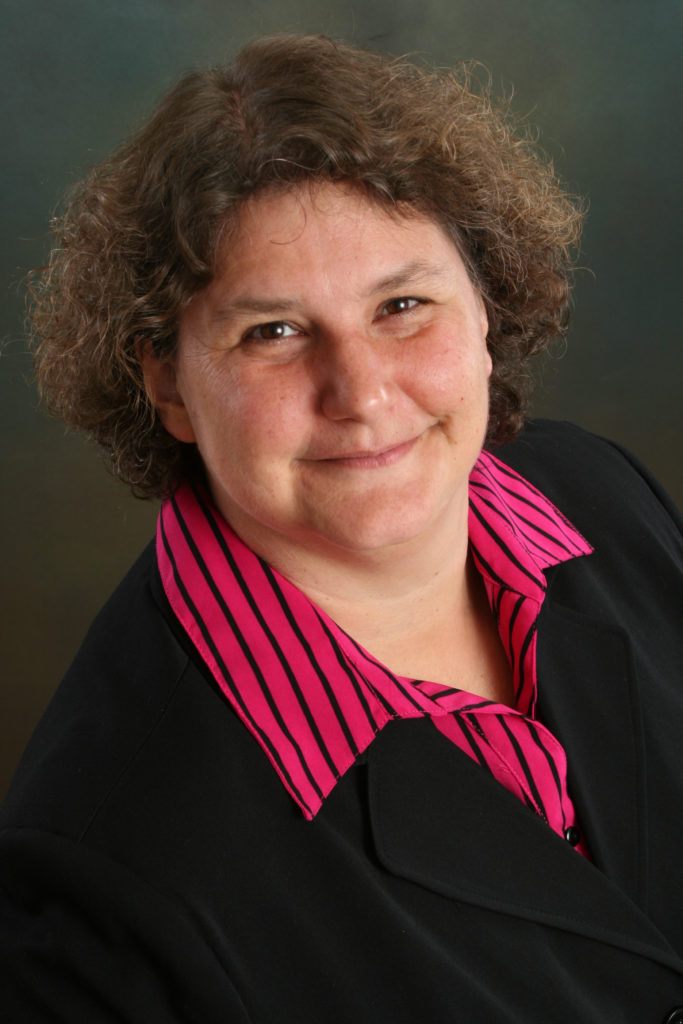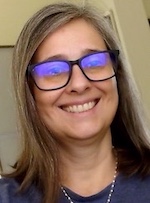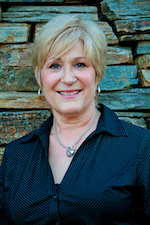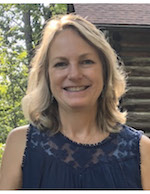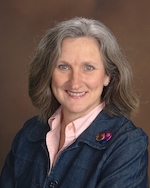This session is presented by moderator Dr. Tia Andrighetti and FNU faculty co-presenters.
Creating a Culture of Innovative Quality Improvement – Tools for Practicing CNMs to Implement at Your Birth Setting
Births can be unpredictable and midwives need to be prepared for events that may not happen often, but that can have deleterious effects on our clients. In order to keep these skills honed, we need to practice reacting in the moment to complications. This can be done with simulations. The Joint Commission also requires that birth settings simulate these events with their staff. Come join Frontier Nursing University for some information about the use of simulation as a quality improvement technique. We will share a birth complications simulation with you and you will spend some time working with peers to tailor this to your birth setting leaving the session with a take home simulation you can implement.
Moderator
Tia Andrighetti, DNP, APRN, CNM, CHSE-A, CNE
Tia Andrighetti is an associate professor at Frontier Nursing University. Her areas of interest include application of knowledge using a variety of teaching modalities. Much of Dr. Andrighetti’s career has been spent in writing, implementing and evaluating the use of high fidelity simulation in the education of midwifery students. Her current research involves the area of Deliberate Practice during those simulations.
Faculty Co-presenters
Tanya Belcheff, DNP, CNM
Tanya Belcheff holds a degree from the University of New Mexico and has been in practice for 19 years. She is a member of ACNM and AABC. In 2016 she began to work as Regional Clinical Faculty at Frontier Nursing University. She has worked in birth centers and teaching hospitals as a full-scope midwife. She also has experience in administration and providing group care and physiologic birth in the birth center setting. Dr. Belcheff’s work with Frontier Nursing University has centered around innovative ways to integrate didactic learning into the clinical experience through simulation. She is passionate about elevating the status of families by decreasing health disparities providing innovative, inclusive, quality, client-centered care.
Donna Barisich, CNM, MS, FACNM
After a long nursing career in obstetrics and women’s health, Donna Barisich graduated in 1997 from the University of Michigan with a Master of Science degree and Midwifery certificate. She practiced full-scope midwifery in 4 states over the course of her 20 year midwifery career before retiring from clinical practice in December 2017. Donna is currently Clinical Course Faculty in the CNEP and Women’s Health programs at Frontier Nursing University where she is educating the next generation of nurse-midwives and women’s health nurse practitioners.
Lisa Huckaby, DNP, CNM, CNE
Lisa Huckaby is an Assistant Professor in the labor and birth course for midwifery and clinical faculty for Georgia students at Frontier Nursing University. As an FNU 1997 graduate, Dr. Huckaby has over 25 years of clinical midwifery experience in her local community and six years with FNU, teaching future nurse-midwives. She received her Doctorate of Nursing Practice degree at Augusta University in 2014 and holds special interests in labor and birth progress, fetal monitoring, and clinical support of the midwife and women’s health student.
Maria Mock, DNP, CNM
After being a Labor & Delivery nurse for 17 years, Maria Mock graduated in 2000 with a nurse-midwifery certificate from Frontier Nursing University. She also obtained her Master’s Degree in Nursing from Case Western Reserve University in 2000. Dr. Mock spent the first three years establishing a midwifery practice in southwest Georgia with a private MD practice. She also taught in an Associate Degree of Nursing program for three years before returning to clinical practice as a CNM with an FQHC in southwest Georgia for nine years. Dr. Mock graduated from Frontier in 2016 with a Doctorate of Nursing Practice and began her current faculty position as a Regional Clinical Faculty for CNEP and Women’s Health students and teaches in PC 713: Principles of Independent Practice.
Eileen J. B. Thrower, CNM, APRN, Ph.D., CNE, FACNM
Dr. Thrower is Assistant Professor at Frontier Nursing University where she teaches in the community-based nurse-midwifery education program. Her doctoral research examined oral histories of nurse-midwives in Georgia and she continues her research of the history of midwifery. She is also very passionate about the scholarship of teaching and learning and has published and presented on evidenced-based teaching methodologies.
During her 25 years of clinical practice, Dr. Thrower established two nurse-midwifery practices in West Georgia. She continues clinical practice as a volunteer providing well woman and gynecologic care to women at a free clinic in West Georgia. She is a past-president of Georgia’s ACNM Affiliate is currently the ACNM National Program committee chair-elect. Dr. Thrower enjoys hiking, camping, boating, crocheting, reading, and solving crossword puzzles in her free time.
Victoria H. Burslem, MSN, APRN, CNM, CNEcl, FACNM
Vicki Burslem has been active in midwifery clinical practice, administration, and education throughout her career, caring for women in public and private settings and attending births both in-hospital and out-of-hospital at a freestanding birth center. Vicki is currently on faculty at Frontier Nursing University and has previously served on faculty at the Midwifery Institute of Philadelphia University (now the Midwifery Institute at Jefferson), educating students in both its certified midwife and nurse-midwifery pathways distance education programs. In addition to serving as a preceptor for numerous midwifery students during their on-site clinical experience, Vicki is a member of the team involved in the development of and leading virtual and in-person clinical simulation activities for Frontier’s midwifery and women’s health students. She is passionate about her role in educating the next generation of midwives, with a desire to strengthen the development of exemplary clinical skills and an ongoing commitment to serve women with evidence-based practice provided with compassion and shared decision-making.





